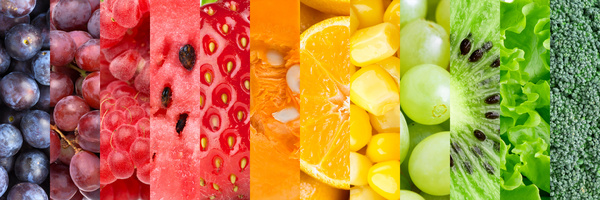
Do organic foods only have advantages? Almost always, but be aware of what “organic” means exactly.
Who doesn’t know that fruits and vegetables should be present in our daily lives for a healthier diet? And part of this thinking makes us think that organic products are healthier. However, some facts must be demonstrated so that you realize that foods labeled as organic are not always the best and healthiest option for your family’s food table.
First of all, there are many individuals who think that an organic product is synonymous with a product that was created in perfect condition: without herbicides, pesticides, or any other chemicals. But that’s not true. In most cases, organic foods contain chemicals that are approved for use in this type of food, but they are much less harmful than artificial fertilizers and pesticides.
As natural as some pesticides are, they can also be harmful. These pesticides, in this case, can harm the same or even more than the synthetic ones that are used in non-organic products. So, you should pay attention to this before making your purchase of “organic foods (but not that organic)”.
Just to give you an idea, there are many places where organic products must be certified, as is the case in the USA. In the country, there are more than 40 different institutions responsible for certifying organic products. However, most products end up on the market and, consequently, on the individual’s table without having undergone this certification, which means that, in fact, you can pay a lot for a product that is in no way different from the others!
A tip?
Of course, there are real, quality organic products all over the world that are truly natural and not harmful to your health.
The ideal is to check if the product has a certification and research farms and/or other places that work with the cultivation and sale of organic food, to ensure that they can offer you quality products with the least amount of pesticides. possible. In any case, even if you buy your food at the market, be sure that it are certified by some institution.
When you find this really high-quality food, don’t be alarmed, as the price promises to also be a little higher, due to the labor required for small-scale production (since organic foods are actually produced by small farmers). ).
Furthermore, usually the appearance of the product that is truly organic is also a little different since they were grown completely naturally. They generally do not have such strong and striking colors, due to the absence of some substances, but they can also be smaller and have stains on the shells due to frequent attacks by small insects.
It is also worth remembering that the less capitalist appearance is exactly what makes organic food much more natural, after all, the appearance we see in normal fruits and vegetables is only possible because of chemicals.
The production, processing, labeling and marketing of organic products in Brazil are governed by Law 10,831/03, Decree 6323/07 and specific Normative Instructions.
Pay attention to the rules regarding organic products:
I – for products with 95% or more organic ingredients, non-organic ingredients must be identified and the term “ORGANIC” or “ORGANIC PRODUCT” may be used;
II – For products with 70% to 95% organic ingredients, labels must identify these
organic ingredients and display the words: “PRODUCT WITH ORGANIC INGREDIENTS”;
III – Products with less than 70% organic ingredients cannot have any expression regarding organic quality.
Added water and salt should not be included when calculating the percentage of organic ingredients.
Source: https://www.receitasdemae.com.br/receitas/o-lado-oculto-dos-alimentos-organicos/


